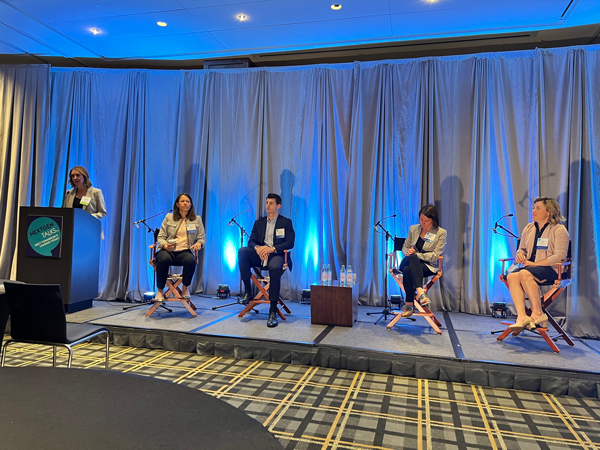Visiting your state capitol can be more than just a routine trip—it's an opportunity to directly...
5 Strategic Communication tips
At Lumin Strategies, we value long-term, collaborative relationships with our clients. Such relationships allow us to invest in one another to produce better outcomes.

As an example, I recently attended the NextGen conference with our client, Cabarrus Economic Development Corporation. NextGen is an opportunity for a small group of economic developers to engage with site selection consultants who evaluate and recommend communities when companies want to expand or relocate.
As a strategic communicator helping Cabarrus EDC tell its story, this conference provided the perfect setting to learn about our audience.
Here are five strategies that we either practiced or saw in action at this conference that you can use when talking with your key audiences to gain insight into what they want from you.
-
Set aside your preconceptions.
I prefaced a question to an economic developer this way, “You show up in a community and you get a 20-minute slide deck from the economic development executive. What do you want to see?” The answer challenged my preconceptions. “It rarely happens that way. We are there to see the community, not a conference room.” I was trying to figure out the best way to cook a hamburger, but my audience wanted ice cream.
-
Ask meaningful questions.
There is obviously a time for chit-chat and building rapport. But don’t miss an opportunity to learn something actionable by only asking fluffy questions. If your audience knows that you are in the conversation to learn how to better interact with them, ask them what they need. Because… -
Your audience is made of individuals.
They are people who want to be successful in their job and want their job to be as easy as possible. They probably want to tell you exactly how you can help them. Please let them.
-
Take notes.
This has two benefits. Obviously, if you are in a “drinking from a firehose” situation where the good advice is being sprayed at you at high velocity, you won’t remember everything, so write it down. Also, who doesn’t like the feeling of saying something and seeing that someone thought it was important enough to write down? This is a great way to connect. Bonus tip: if you take notes with pen and paper, the person knows you are listening. If you take them on a laptop or phone, they may wonder if you are doing something else.
-
Use it.
The only thing worse than not knowing what your audience wants is knowing what they want and not giving it to them.
We get clues from our audience all the time. Some subject lines get more opens than others. Some graphics get more clicks than others. Oftentimes, though, we get caught up looking for clues about what our audience wants, when they are actually willing to openly confess it. Ask people what they need, and they will tell you. The site selectors at NextGen certainly did.





